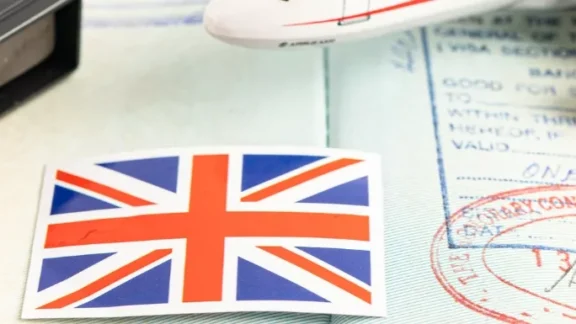Indefinite Leave to Enter (ILE) gives a foreign national applying from outside the UK permission to enter the UK to settle permanently. Indefinite Leave to Remain (ILR), on the other hand, enables a person applying from inside the UK to settle permanently. As such, both Indefinite Leave to Enter and Indefinite Leave to Remain are forms of permanent settlement in the UK and have the same benefits. The difference is simply where the permanent settlement application is made from.
ILE may be granted to foreign nationals who:
- Are eligible to become a British citizen (e.g. a person born outside the UK with a British parent)
- Previously held ILR but left the UK for more than 2 consecutive years and are now returning to live in the UK permanently (Returning Resident visa)
- Are under 18 and have been adopted by someone who is a British citizen or is permanently settled in the UK
- Is coming to the UK to care for a relative or family member under the Adult Dependent Relative visa route.
- Are a dependant of a member of the armed forces
- Are a foreign or Commonwealth citizen discharged from HM Forces under paragraph 13 of Appendix Armed Forces to the immigration rules, or
- Are victims of domestic abuse who have been abandoned outside the UK
Holding ILE means that you are permanently settled in the UK and you are free of any immigration time restrictions. In addition, you can vote, access the NHS, and your children can attend university and pay the same amount as a domestic UK student.
Does Indefinite Leave to Enter Expire?
While there is no expiry date for Indefinite Leave to Enter, it will automatically lapse after 2 years of continuous absence from the UK. If your reason for applying for ILE is to remain in the UK permanently, it is essential to keep an eye on the duration of any absences from the UK and ensure that these do not exceed the duration permitted. For this reason, it is advisable to apply for British citizenship as soon as possible, which will allow you to remain indefinitely without being subject to the 2-year absence rule.
If you leave the UK for 2 or more years, you will need to apply and meet the criteria for ILE in the form of a Returning Resident Visa.
How to get Indefinite Leave to Enter
To apply for Indefinite Leave to Enter (ILE), you must apply from outside the UK. The type of ILE application that you need to make will depend on your eligibility – i.e. whether you are applying on the basis of your eligibility for British citizenship, adoption, or as a returning resident.
You may also need to meet the following requirements:
- Pass the Life in the UK test
- Meet the English language requirement
- Have sufficient funds to support yourself and your children without accessing public funds.
The steps to apply for ILE are as follows:
- Complete and submit the correct ILE online application form
- Pay the application fee (currently £3,029)
- Make and attend a biometric appointment if requested to do so
- Provide any documents requested – e.g. passport, birth certificate, immigration history, and evidence of passing the Life in the UK test and meeting the English language requirement (if applicable).
For help with your ILE application, please speak to a member of our friendly and knowledgeable immigration law team on 020 3744 2797. We will listen to your background and plans for the future and recommend the best approach. We can handle the process of applying for ILE on your behalf, ensuring that your application has the very best chance of a successful outcome.
Indefinite Leave to Enter outside the immigration rules
Indefinite Leave to Enter the UK may be granted outside the immigration rules in exceptional circumstances. This may apply, for example, if you have a case under Article 8 of the ECHR, which protects your right to respect for your private life. The decision to grant indefinite leave to enter outside the immigration rules is purely at the discretion of the Home Office. As the Home Office states, ILE outside the rules is only ever granted outside the rules in the rarest of cases.
Exceptional circumstances that may lead to indefinite leave to enter outside the immigration rules being granted may include:
- For family and private life reasons – if the refusal of ILE could result in unjustifiably harsh consequences for the applicant, their partner or child, UKVI may overlook certain criteria (e.g. by considering other sources of money to meet the financial requirement).
- Discretionary leave for medical or modern slavery matters – this may apply in cases involving medical matters, modern slavery, or human trafficking.
- On other compelling compassionate grounds – this may include an emergency or disaster that could not have been anticipated by the applicant.
To apply for Indefinite Leave to Enter outside the immigration rules, applicants need to complete and submit Form SET (O)1.
How can Reiss Edwards help?
Our immigration lawyers can assist with any aspect of applying for Indefinite Leave to Enter, such as:
- Review your current circumstances and those of your family members and check your eligibility for ILE
- Check if you meet the continuous residence and absence rules for ILE
- Handle any queries raised by UKVI on your behalf
- Handle a refusal of your ILE application
- Guide you and your dependants through the process of gaining citizenship in the UK
For assistance with applying for ILE or British citizenship, please speak to our immigration lawyers for a free telephone consultation on 020 3744 2797
References
1 GOV.UK: Form SET (O) (‘Settle in the UK in various immigration categories’)





